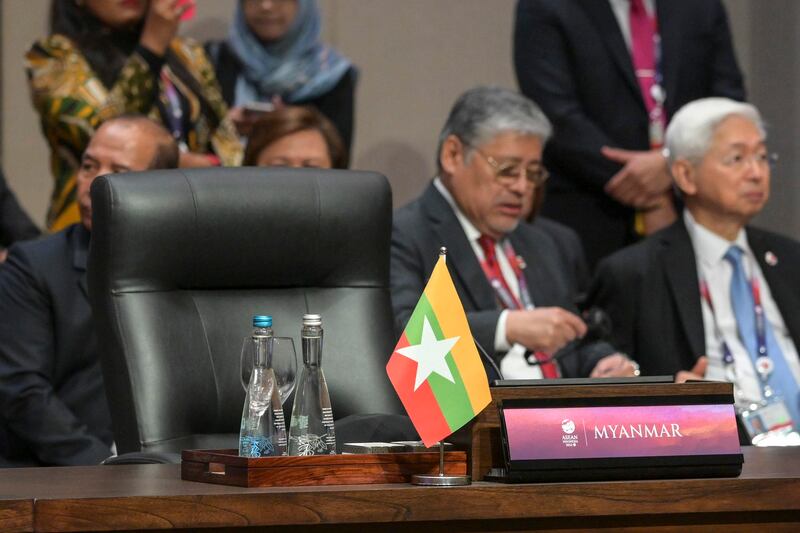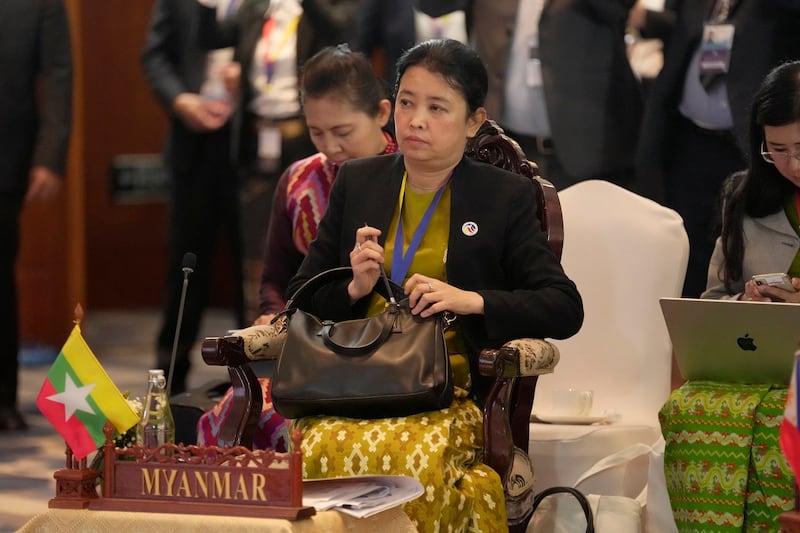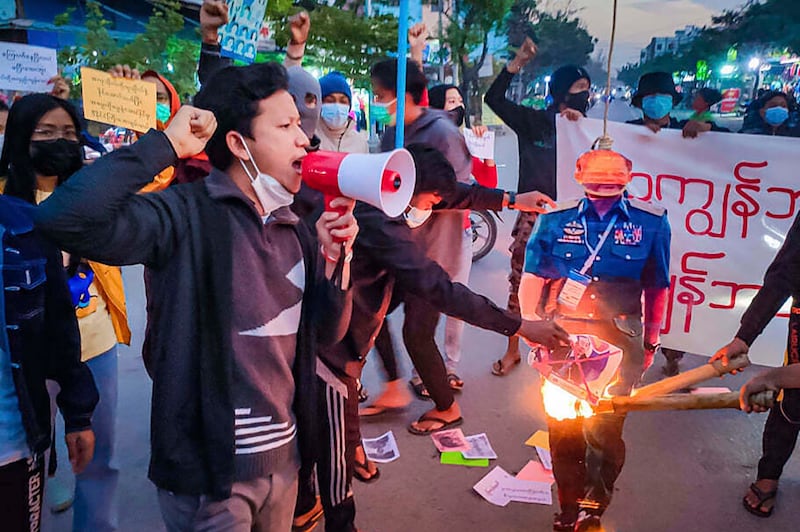Lurking within the cacophony of condemnations of ASEAN’s “handling” of the crisis in Myanmar, of its utter failure to move the military junta an inch towards compromise or retreat, is a lament that here was a chance for the bloc to prove its mettle—an opportunity squandered under the weight of internal contradictions and apathy.
Implicit is the belief that the barbarism wrought upon the Myanmar people by the junta in the three years since the Feb. 1, 2021 coup provided an opportunity for other Southeast Asian governments to flex their muscles on the world stage. Worse, it offered them an opportunity to show the United States and China that they could keep their own house in order, as though the fate of the Burmese was secondary to keeping the New Cold War from Southeast Asia’s doors.
But a more fundamental problem with the criticism is the presumption that the bloc could have realistically done something about the Myanmar civil war. To fault someone for failing to achieve what they cannot is unfair, but to criticize them for asserting capabilities they never possessed is another matter entirely.

Was ASEAN guilty of promulgating a false narrative—of proclaiming its capacity to manage the crisis on behalf of the international community? Did it subscribe to the very propaganda it urges others to echo, extolling the existence of "ASEAN Centrality" and the efficacy of the "ASEAN Way", when, in reality, the former is a diplomatic pleasantry and the latter a convenient evasion of unpleasant issues rather than a unique method of diplomacy?
The culpability extends beyond ASEAN; Western democracies and China, cognizant of ASEAN's limitations, allowed it to set itself up for failure in order to absolve themselves of any responsibility.
Consider what ASEAN could have done in the early days of the coup. Expelling Myanmar from the bloc, imposing trade sanctions, or cutting off investments—all unfeasible options. Communist Vietnam and Laos, staunchly against ASEAN punishing human rights violations, would have resisted.
Thailand, governed by generals who seized power through a coup, would have objected to penalizing a fellow putschist military; and Singapore, a major investor in Myanmar, would have rejected trade sanctions.
Flawed Five-Point Consensus
Faced with division and apathy among its members, ASEAN settled for the Five-Point Consensus, a compromise flouted by the junta since day one, showcasing a better understanding of its neighbors' weaknesses than they possessed.
The U.S. President Teddy Roosevelt once recommended speaking softly and carrying a big stick. ASEAN jettisoned all its sticks on day one and spoke pompously—and, to mix the aphorism, offered all its carrots to the junta without any conciliation in return. The junta, well aware that Southeast Asia wouldn't formally exclude it from ASEAN, played its cards astutely, benefiting economically from ASEAN goings-on even when excluded from diplomatic gatherings.
Indonesia, the ASEAN chair in 2023, is keen to stress that there will be no U-turn on its policies from last year, despite that being exactly what is happening, as seen by a senior junta official in attendance at the latest Foreign Ministers Retreat in Luang Prabang—an unprecedented event in more than two years.

Indonesia might also reflect on how easy it will be for the new guardians of ASEAN meetings – Laos is the chair for 2024 – to topple the few good mechanisms it put in place last year. One might not consider a policy to be successful if it cannot sustain itself for longer than a year.
Actually, it isn't correct to say Indonesia failed: Jakarta generated many headlines for itself because of its apparent hardline and strident management of the crisis, which may not have done much for the Burmese but certainly stroked Indonesia's ruling elite's image of themselves as the re-emergent kingmakers of the region.
Clearly, the Laotians, who now think they’re in charge of the process as ASEAN chair, reckon it’s time for greater cooperation with the junta, which will mean giving more slack to the Tatmadaw without anything in return.
Supporting the status quo
Last week, the ASEAN foreign ministers agreed for the first time since the coup to send humanitarian assistance to Myanmar, within a safe zone between the Thailand-Myanmar border, which will probably work off a joint task force that Thailand and the junta discussed in December.
In other words, it will be humanitarian assistance doled out by ASEAN and one party in the Myanmar conflict, despite ASEAN’s pretensions of neutrality. ASEAN's rhetoric of “reaching out to parties concerned” belies its actual interaction, or lack thereof, with the National Unity Government.
Why not invite a NUG bureaucrat to the latest Foreign Ministers Retreat? Even had ASEAN practiced non-intervention, it would still have been a form of intervention on the junta's side—neutrality always benefits the status quo. The junta takes power and ASEAN doesn’t punish it, so non-interference is to accept the removal of a democratically-elected government as the new normal.
The catchphrase of a "Myanmar-owned-and-led solution" could best be achieved if ASEAN admits that it cannot deal with this problem and absolves itself of responsibility. Of course they won’t, as what is happening in Myanmar is secondary to their concerns about the “internationalization” of the crisis.

At least, though, admitting failure would be honest and more responsible. It would strip foreign powers of their shield—their ability to hide behind ASEAN inactivity—and force them to either admit they want nothing to do with Myanmar or intervene more directly.
It would do more to help the Burmese, stripping the junta of the legitimacy that ASEAN provides. Either do something meaningful or leave it to a Burmese to decide entirely—a genuine Myanmar-owned and led solution without any ASEAN handholding of the junta.
After all, deep down, it’s clear the rest of Southeast Asia doesn’t care whether post-conflict Myanmar is a federal democracy or a military fiefdom. They want the conflict to end as soon as possible, so they will never offer any support for this revolution decades in the making and will try everything to hasten a quick and incomplete resolution that merely postpones this struggle until a later date.
David Hutt is a research fellow at the Central European Institute of Asian Studies (CEIAS) and the Southeast Asia Columnist at the Diplomat. As a journalist, he has covered Southeast Asian politics since 2014. The views expressed here are his own and do not reflect the position of Radio Free Asia.
